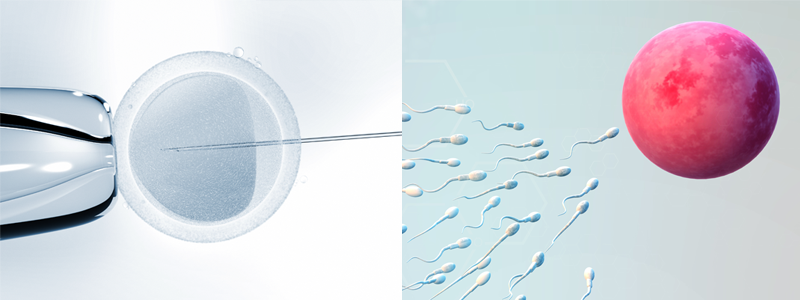What is PCOS?
Polycystic ovary syndrome (PCOS) is a common condition in women where multiple cysts are found in the ovaries. Experts estimate that as many as 20% of women suffer from polycystic ovaries (PCO), without suffering from the full syndrome (PCOS), which affects between 5-10% of women and involves hormone imbalances and a range of concurrent symptoms.
The cysts that are found in the ovaries are, in fact, egg containing follicles that have not developed to their full maturity. This means that eggs which have started to develop in the ovaries stop at an immature stage when they are still too small to be released, and they remain within the ovary. Women suffering from full PCOS additionally have an imbalance of hormones, and a range of other symptoms that can include: unwanted hair growth, weight gain, acne, an irregular menstrual cycle and depression. The symptoms can be mild or severe, and in many cases, they tend to begin in adolescence.
What does PCOS mean for fertility?
Women suffering from PCOS can be insulin resistant and have a higher than normal production of testosterone by the ovaries. The condition is also characterised by an imbalance of other hormones including sex hormone binding globulin (SHBG), luteinising hormone (LH), and anti-mullerian hormone (AMH). Together, this imbalance can lead to difficulties for women when trying to conceive.
How can I check if I’m suffering from PCOS? Why is my AMH score important?
AMH is hormone given off by developing follicles, which are the egg sacs containing immature eggs. AMH naturally declines with age as the number of follicles drops. We know that women with PCOS often have elevated AMH levels, likely to be due to the high levels of follicles they have in the early stage of development. Armed with information about the average AMH levels we expect to see in women across different age ranges, we can identify patients with higher than usual AMH scores using a simple blood test as one possible indicator that they may be suffering from PCOS. You can take an AMH blood test on any day of your menstrual cycle and have the results back on the same day. If the results suggest that your fertility may need further investigation, the doctor will advise for you to have a full internal ultrasound scan. This is a comprehensive scan which can look at your antra follicle count (AFC) and if there are any cysts in the ovary. It’s important to discuss your AMH score with your doctor as it must be read in the context of a number of factors, most importantly, your age.
However, what we do know is that at any age, a score over 48 pmol/L (which means picomole per litre) is considered high and could be a sign of PCOS. Studies have actually shown that around 97% of women with an AMH over 71 pmol/L have PCOS.
If my AMH score is high, can I still have fertility treatment?
Building a full picture of your fertility health, including your AMH score is important if you are considering fertility treatment. The good news is that women with PCOS generally respond well to IVF treatment – but they can be at risk of over-responding to medication designed to stimulate the ovaries which can put them at risk of Ovarian Hyperstimulation Syndrome (OHSS). OHSS is a common, and potentially serious complication of fertility treatment which causes the ovaries to swell. The safer option for patients suffering from PCOS is mild stimulation treatment. We have pioneered safe and successful Natural and Mild IVF protocols to suit women and their individual circumstances.
Is there a cure for PCOS?
While there is no cure for PCOS, you can manage the symptoms through lifestyle choices, for example, losing weight. An active lifestyle coupled with a balanced diet that is low in processed sugars and high in fresh fruit and vegetables can also help. Doctors may prescribe insulin medications to normalize the hormonal imbalances and improve insulin resistance.
If you are worried that you may be experiencing some of the symptoms associated with PCOS, or you have PCOS and you are interested in safer and milder IVF treatments that are kinder to the body, call us on 0333 240 7300.







